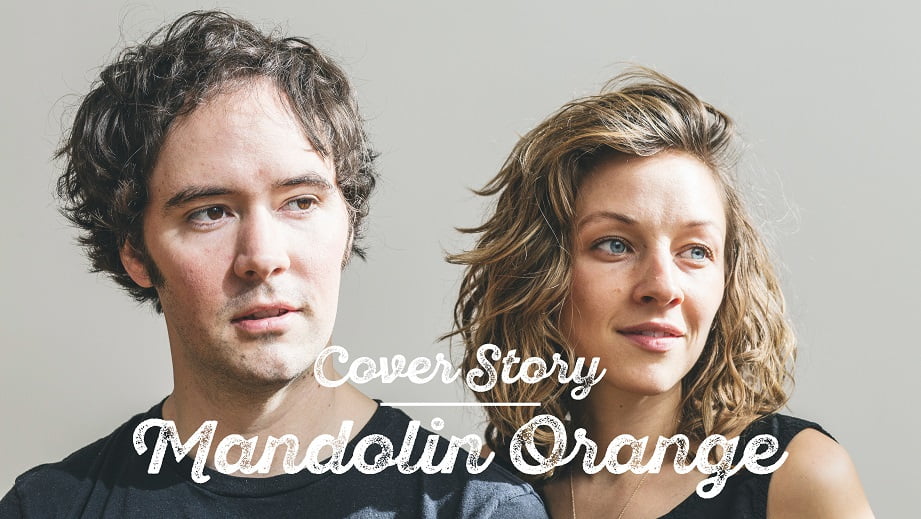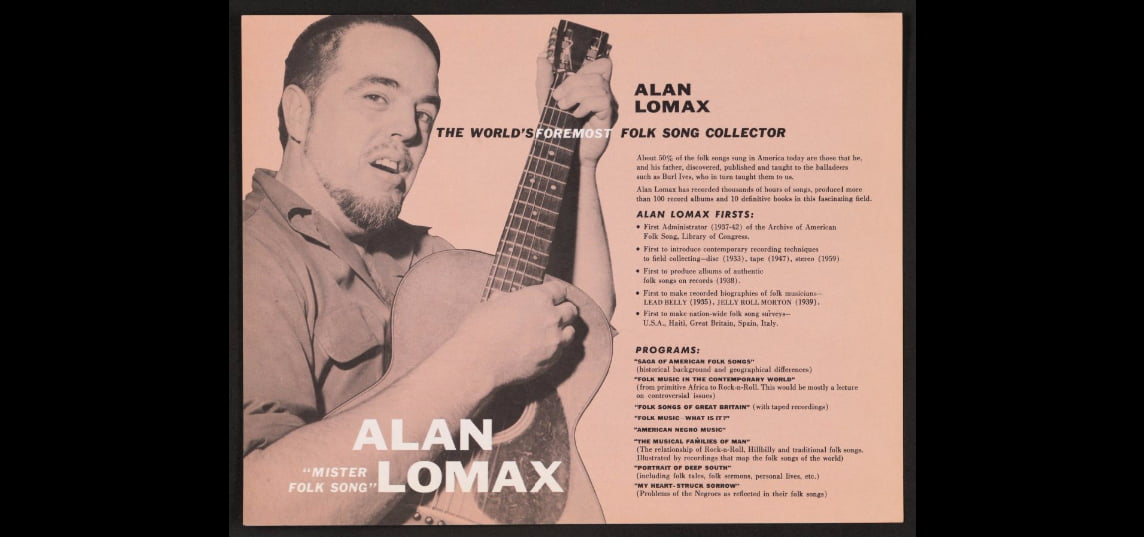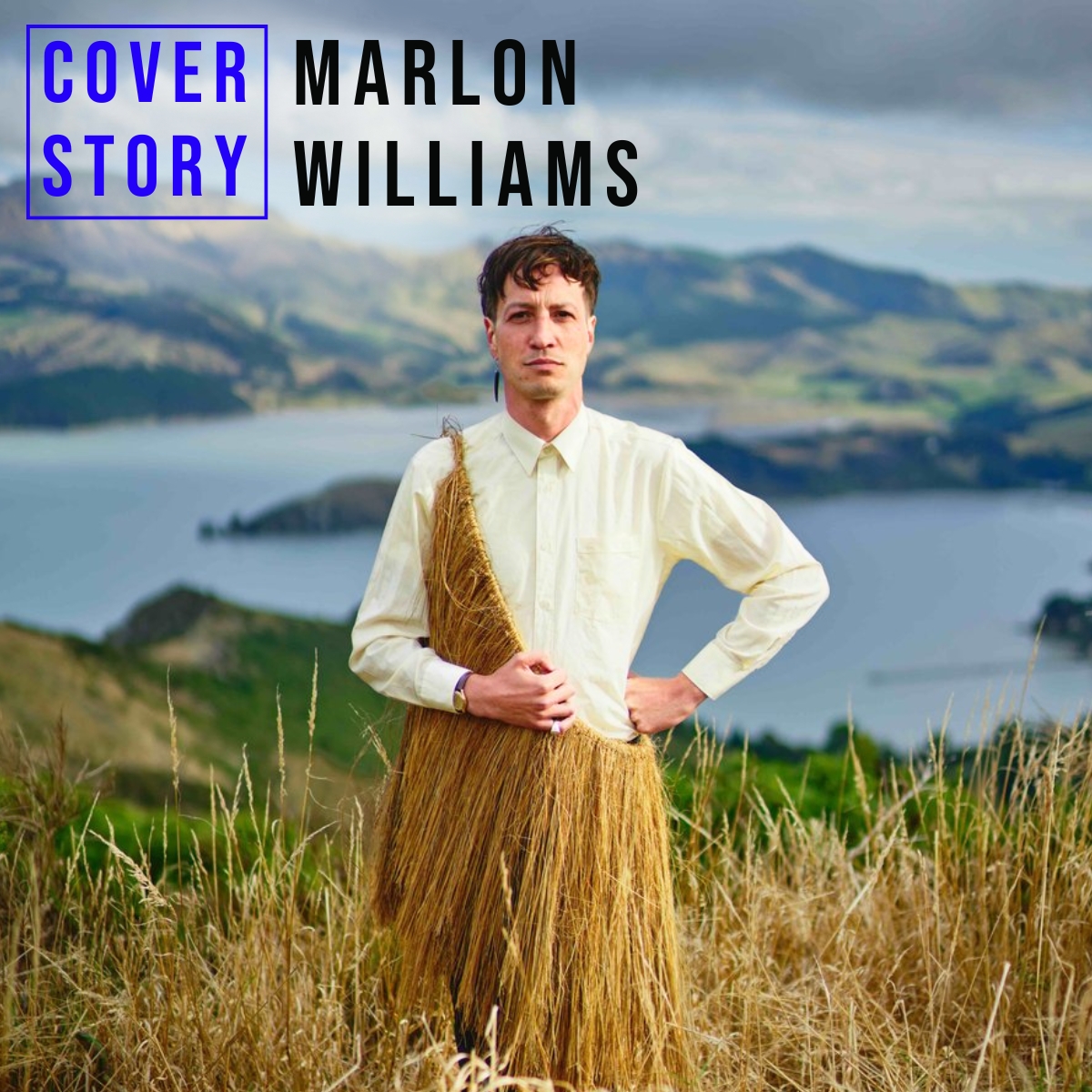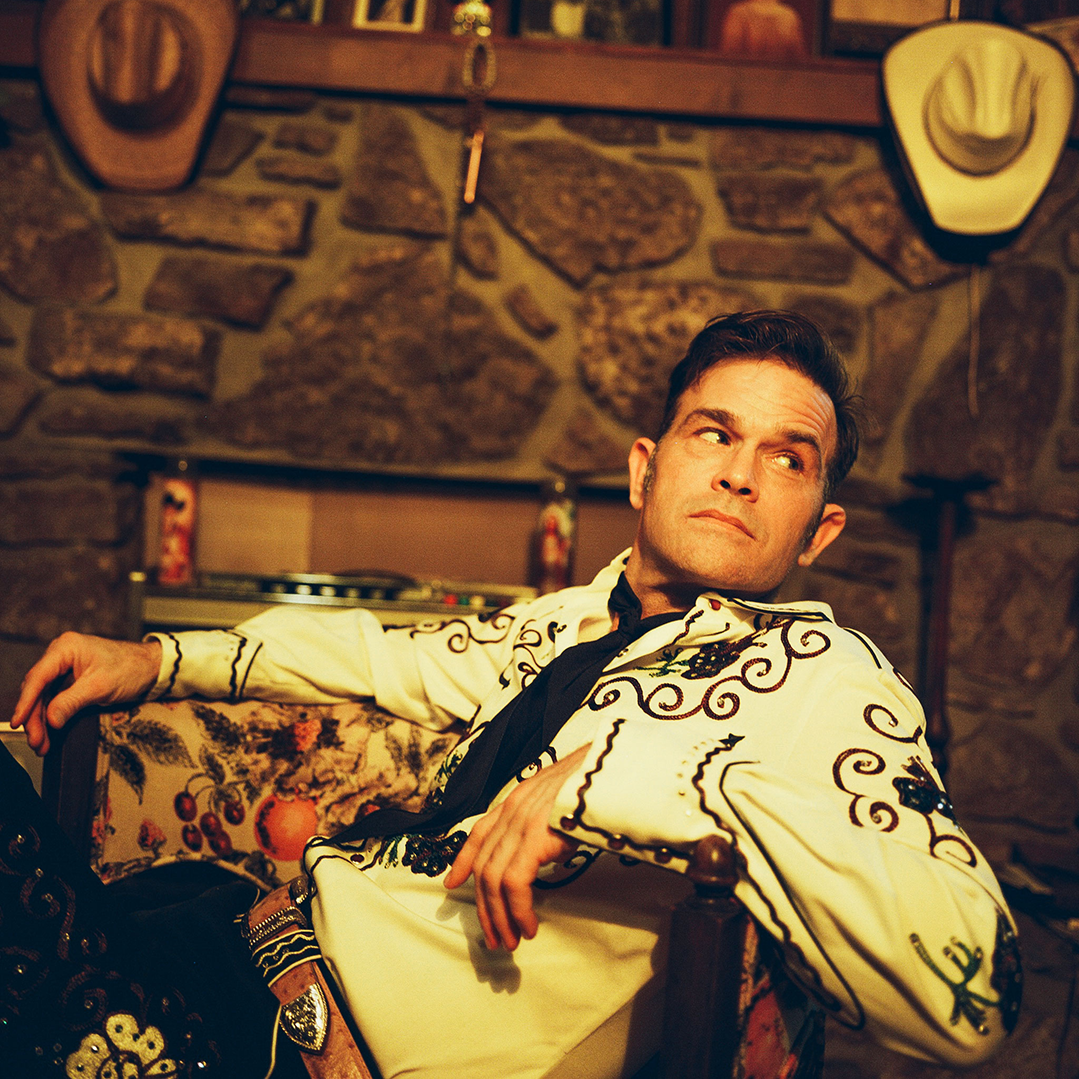It’s been a decade since Mandolin Orange founders Andrew Marlin and Emily Frantz became acquainted, and over those 10 years, they have forged a quiet musical style that nonetheless can make a statement. For their newest album, Tides of a Teardrop, the song cycle examines the emotions stemming from the death of Marlin’s mother when he was 18. Yet it’s not an overly heavy record, as it finds ways to honor family memories as well as the determination to move forward.
Leading up to an international tour to support the album, Marlin and Frantz chatted with the Bluegrass Situation for a two-part cover story.
BGS: Tell me about “Golden Embers.” What was on your mind when you wrote that song?
Andrew: I had a lot on my mind. I guess the whole record, and especially that song, is about the passing of my mom. I mean, there are a few strays throughout the record, but for the most part it’s about me trying to get some of those thoughts out, and get some of those thoughts out on the surface and dig them up a bit – and hopefully leave them there, you know? Instead of internalizing it and having it come out in different ways.
I feel like “Golden Embers” especially was one of those songs I was writing to my dad because in my family we don’t have a direct line of communication. There’s a lot of … hard to say, Emily could probably speak to it because she witnesses it from an outside perspective. But there’s a lot of implied meaning. Nobody ever says anything directly, or how they actually feel, so I wanted to get some of the things I was feelings towards my dad…
Emily: So you implied it in the song. (both laugh)
This song seems like a way you can celebrate her life too.
Emily: Yeah, I think that song is about wanting to get past the mourning and the anger or it, and to remember who she was, instead of it having to be overshadowed by her life ending.
Emily, did you have a chance to know her?
Emily: I didn’t, no, but I do hear a lot about her. She sounds like she was a very special lady.
I need to ask you about “The Wolves.” Who is playing electric guitar on there?
Emily: It’s Josh Oliver. He’s played with us for a long time and he’s done most of the electric guitar and most of the keyboards on our past few albums. He really shines on that one, for sure.
I’ve been following your career for a while, and it seems that you have more of a band sound now.
Emily: Yeah, we still do duo stuff here and there, as it feels right to us, but we have been focusing more on playing live with the band, after we made Blindfaller with the band and toured that way for a long time. That was the really cool part about going in to record Tides of a Teardrop is that we had over a year of touring as a band behind us, so we were so much more jelled as a unit that way than we have been ever before.
During the course of that year, did you play any of these new songs?
Emily: I think we played “Into the Sun” a few times live, but we mainly got together and worked out the tunes before we got into the studio.
Speaking of “Into the Sun,” people may be curious when they hear you singing it. Did you write that song?
Emily: No, Andrew writes all the songs. And then we toss them around and decide when there’s one that I should sing. I do prefer to sing harmony. (laughs) But that particular song is one that Andrew wrote thinking about my granddad, who passed away a couple of years ago. So it felt fitting for me to sing lead on that.
Andrew: He was quite a character, man. He loved to travel and that was one thing we could always talk to him about. All these places we were going to, most of them he had been to. And he knew a lot of the backroads, because if you think of the way he used to travel, he didn’t have Google Maps. He was all about maps and he was really good about remembering road names and highway names and certain landmarks. Whereas now, I couldn’t tell you half of the highways we ever travel – but I can get you there with Google Maps.
It seems like there is a message of moving onward in the song, but there is a part where you sing about getting back out there — the lyric I’m thinking of is “I’ve mended my broken wing.” How did that lyric help this story unfold?
Andrew: I can tell you what that song is about, and I’m going to, but I like to write in metaphors and leave stuff open. You might get something completely different from that tune and I like that about songwriting. Some of the songs that are getting written are super-specific and you can tell exactly what folks are talking about – they don’t hold up for me. I like there to be a level of interpretation there for the listener.
But, from where I was coming at it, Emily’s grandpa always wanted to be a pilot. And he was unfortunately not able to do so because of a medical condition. So, for me, it started with me thinking about it from his perspective, looking at the sky and thinking, “Man, I want to be there. I want that to be my highway.” But he wasn’t able to, so he found a different way to travel, to get his wings, so to speak.
Andrew, I have read about your “stream of consciousness” songwriting. Can you tell me what that looks like? What is that process like for you?
Andrew: It’s messy but it’s fun. It’s almost throwing the initial idea at the wall and seeing what sticks, and seeing what fits with the melody and the timing that I’d like to go for, when I’m just working with progression and the melody. And usually from there, something will just click. It will grab me and I’m able to chase it, so to speak. Like, it kind of grabs me and then it takes off as an idea. And I allow myself to follow it through the little passageways in my brain. And after the initial song gets written, there’s a lot of editing that goes on in my head, on and on, like in the shower or driving down the road.
Emily: It’s sort of going through and cleaning up the lines, it seems like. Andrew will come to me once it’s written, like out of nowhere, and be re-thinking lines and re-working words just to make it as strong and as concise as it can be.
You did a good job on this record of capturing a sense of spaciousness. How much pre-production did you do before going into the studio?
Emily: We did more than we did in the past, but I think by most people’s standards, not a ton. We like to record live and we’ve always really struggled to do any demo work. It just doesn’t work for us. We either end up making a record by accident, or just banging our heads against the wall. There’s no in-between it seems like. For this album we did hole up in the mountains for a few days and work on the tunes together with the five-piece that we recorded with.
Andrew: And speaking of the spacy nature of the record, playing with Joe Westerlund on drums and Clint Mullican on stand-up bass, and Josh Oliver on electric guitar – those guys are a study in patience. Being on stage with them, and especially being in the studio with them, nobody’s trying to outplay the other one, or let the world know that they’re able to shred.
Emily: Even though they all can.
Andrew: We joke a lot in our band that Clint, Josh and Joe are back there coming up with great musical ideas and then choosing not to play them. (laughs) But yeah, it’s not a lack of knowledge. It’s more about knowing what the songs needs and being fine with that. I think that shines on the record, personally.
Emily: And that’s been important to us, still identifying as a duo, and wanting to maintain some of our favorite parts of playing as a duo – which is having a lot of space in the music. And trying to navigate, how do we expand this sound and play with five people, but not lose all of that space? I think that was something that came more naturally when we recorded Tides of a Teardrop because we had spent the last year playing with this group and learning how to play together.
(Editor’s Note: Read Part 2 of the BGS Cover Story with Mandolin Orange.)
Photo credit: Kendall Bailey






